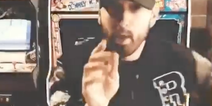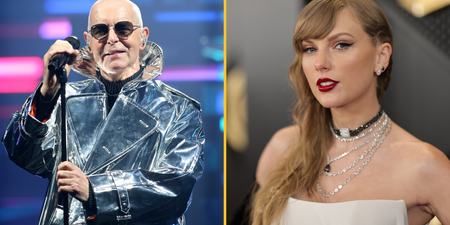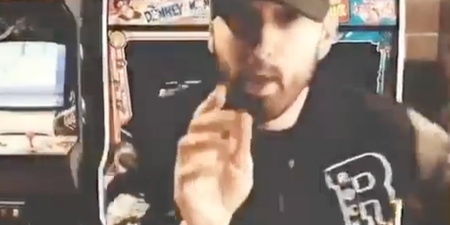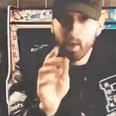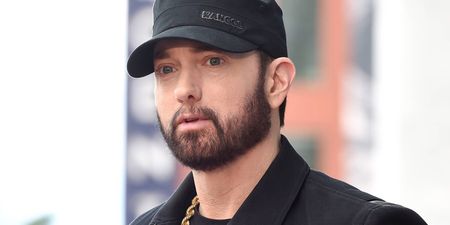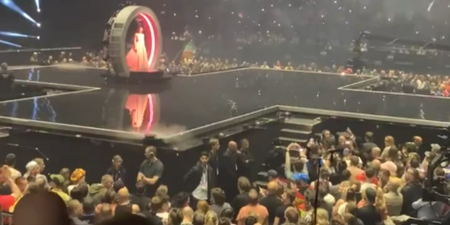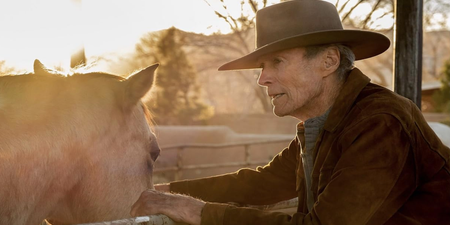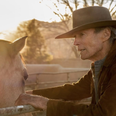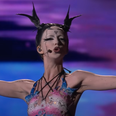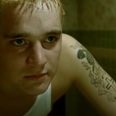Ready Or Not, Here I Come, You Can’t Hide.
There are some albums that have been widely embraced by all music fans, regardless of their personal tastes, and The Score by Fugees is definitely one of them.
For music lovers of a certain age, the album was massively important because it provided a small glimpse at the much larger and diverse world of hip-hop, soul and reggae that was just waiting to be explored.
Fugees use of samples on The Score is so impressive because they drew inspiration from the likes of The Delfonics, The Flamingos, Roberta Flack, The Moody Blues, Bob Marley and even Enya on this era-defining 90s album.
To understand its significance, you have to take a look at the broader tumultuous environment that hip-hop had descended into in ’96.
The ugly feud between East and West coast rappers was rapidly escalating, personified by the growing hatred between Biggie Smalls and Tupac Shakur.
Tragically, both artists would sadly die within 18 months of The Score’s release.
This animosity provided an unnecessary distraction in the ’90s as a heated war-of-words was in danger of taking attention away from some incredibly progressive and groundbreaking albums by artists like De La Soul, A Tribe Called Quest, Jurassic 5, NWA, Public Enemy and The Roots.
The Score was almost like a bridge between East and West Coast rap, it was a record that the hip-hop community badly needed during a tumultuous time.
Guns, bling and bullets weren’t The Score’s raison d’etre because Pras, Wyclef and Lauryn Hill were far more interested in examining the social and cultural issues that existed in the ghetto in a more relaxed, intelligent and imaginative way.
The album was also the first time that a new generation of music fans were exposed to the concept of cuts, mixes, dubs, dialogue and samples being used to link tracks, which has since become a norm.
As Lauryn Hill says, “it’s almost like a hip-hop version of ‘Tommy’, like what The Who did for rock music”.
Here’s our five favourite tracks from a truly wonderful album.
5) Zealots
Fugees debut album, Blunted on Reality, proved to be unpopular with some critics and the public at large but crucially the band were granted complete artistic control on their follow-up.
The recording process for The Score was very languid, organic and chilled as the band created a make-shift haven/recording studio in Wyclef Jean’s uncle’s basement.
This relaxed process of incorporating samples, live instrumentation and DJ’s features on this blistering track that samples I Only Have Eyes For You by The Flamingo’s to brilliant effect.
Their whip-smart lyrics are prominent on this tune as Lauryn Hill manages to reference the brightest star in the Ursa Minor constellation and namecheck a Bertolucci film. Who else is clever enough to do this?
This is hip-hop at its very smartest as mythology, religion, politics, astrology, pop-culture, street violence and music history combine for some great lyrical content.
4) No Woman, No Cry
If you’re going to cover Bob Marley, then you better be good. The strength of this song is that the band didn’t try to ape the legendary singers iconic version because they were confident enough in their own sound.
Despite some of the weighty thematic subjects on the album, The Score is a positive and uplifting record which is best encapsulated in this cover version.
Wyclef Jean’s reggae-tinged vocals perfectly match that toe-tapping beat and the themes of personal loss, social injustice and blind optimism are just as relevant to New Jersey in ’96, as they were to Kingston in ’74.
3) Killing Me Softly
Fugees breakthrough song still has that remarkable ability to produce goosebumps even though it’s 19 years since we first heard it being played.
Once again the band weren’t afraid to cover a classic, Roberta Flack this time around, but you get the impression that Hill’s ethereal voice was tailor-made to cover this track.
The world could see that the girl from Sister Act 2 had now developed into one of the most important artists of the ’90s and it’s almost a shame that Pras and Wyclef added their voices for a few brief moments at the end.
This track belongs to Lauryn Hill.
The song also sampled A Tribe Called Quest’s Bonita Applebum and it proved to be so successful, that it was ‘deleted’ by the label, meaning that it was no longer being supplied to retailers or radio stations because they desperately wanted to start promoting the bands next single, Ready or Not.
2) Fu-Gee-La
The Score boasts some incredible lyrics, rap solos and sublime musical references but sometimes you can’t ignore one of the most important elements in any hip-hop song, the beat.
Christ almighty does Fu-Gee-La get you moving… and how.
That moment on 0:14 seconds when the beat drops and Wyclef’s rap kicks-in almost instantly creates images in your head of of crowds bouncing, arms swaying and shoulders rolling.
The chorus is cleverly crafted to provide the one thing that all concert-goers need, a latch/repetitive line that they can sing back to the band.
We defy anyone to not find their hips swaying to this infectious rhythm.
1) Ready or Not
This track represents everything that Fugees got right on The Score and if the band are remembered for just one song then it should be this.
The Score is a masterpiece and this is the jewel in its crown.
Did you know that the song uses a sample of ‘Boadicea’ by Enya and the Donegal singer actually sued the band after they used her track without permission.
The hip-hop trio and Enya eventually settled out of court.
Unlike some other tunes on the album, every one of the trio is just as important to the overall finished product, as they all have their respective moments to shine.
The hypnotic beat , a sample of Ready or Not Here I Come (Can’t Hide From Love) by The Delfonics, has an almost threatening and ominous quality that lurks in the background but never steals focus from the vocals.
Hill’s angelic notes kick things off, before Wyclef puts you on guard with a timely reminder of ‘jail bars ain’t golden gates’ and the fact that he’s just ‘a born-again hooligan only to be king again’.
There’s not enough superlatives to describe, the then 21-year-old, Lauryn Hill’s vocal range from 2:20 – 2:40.
LISTEN: You Must Be Jokin’ with Aideen McQueen – Faith healers, Coolock craic and Gigging as Gaeilge




